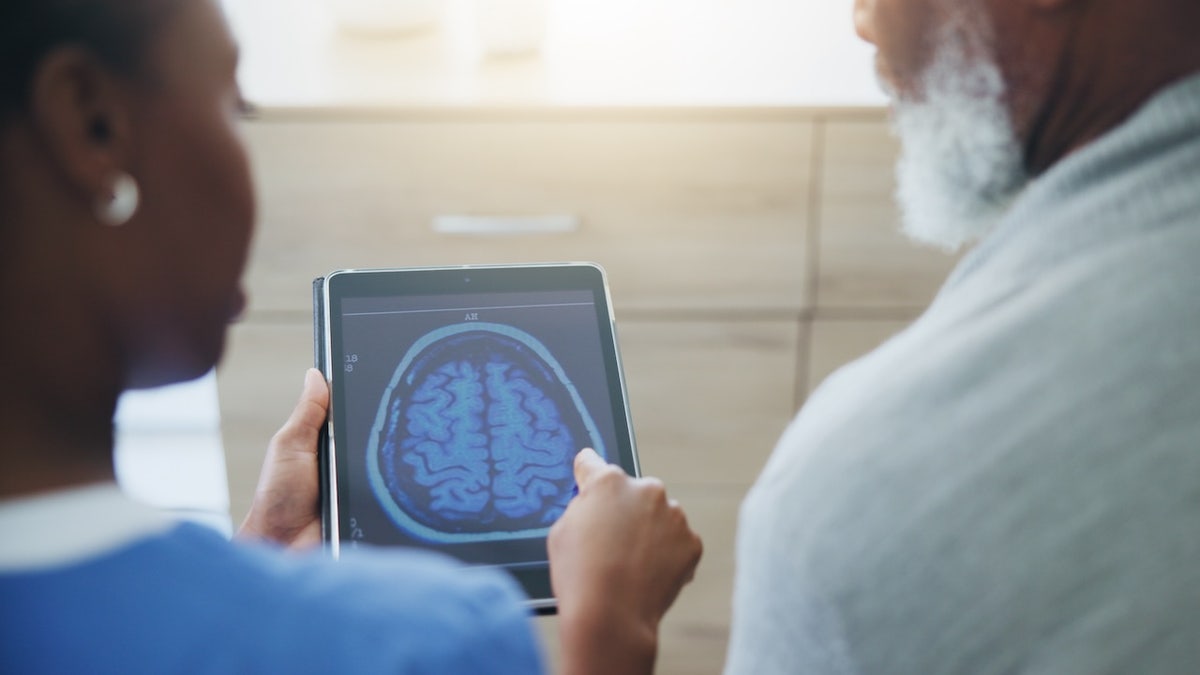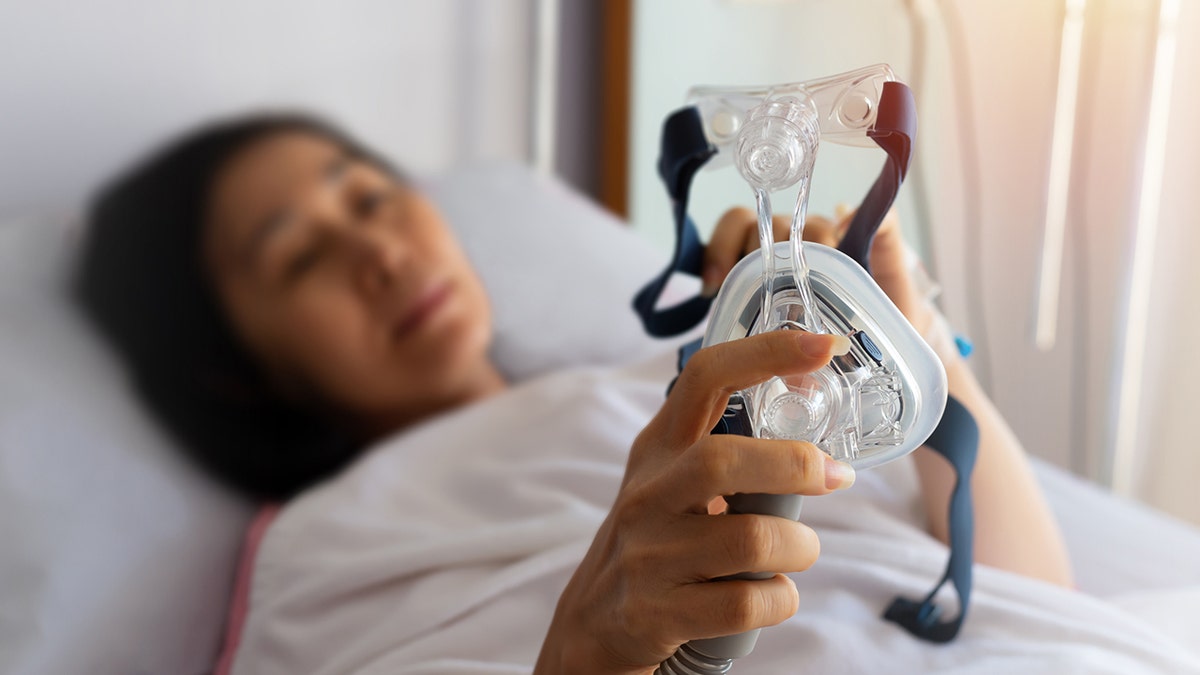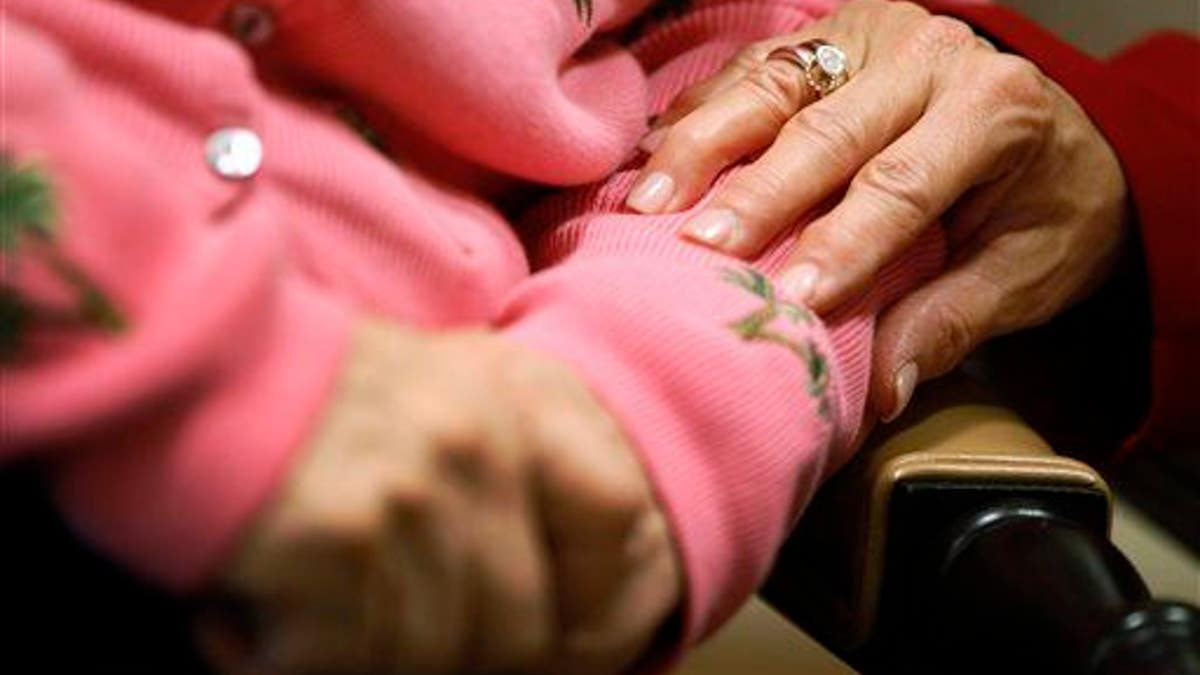Demumnance cases continue to increase in the United States, with people over 55 with a 42% risk of developing their condition during their lives.
A recent study led by Johns Hopkins predicted half a million cases of dementia in 2025 and one million in 2060.
This does not mean that people are helpless to reduce their risk, but according to Dr. Joel Salinas, a behavior neurologist and a professor associated with the Nyu Grossman School of Medicine.
The study suggests that blood pressure and risk of dementia suggests a surprising link
Salinas joined Fox News Digital in an interview with the camera to discuss what promotes the rise in dementia cases and what behavioral changes could provide a certain degree of cognitive protection. (See video at the top of the article.)
Drivers of Dementia
One of the greatest factors of the increase is demographic, said Salinas, who is also the co -founder and medical director of Isaac Health, a virtual memory clinic for health problems and brain memory.
Demumnance cases continue to increase in the United States, with people over 55 with a 42% risk of developing their condition during their lives. (Istock)
“The Baby Boomer population, being one of the largest groups, is also the fastest aging group,” Fox News Digital told Fox. “As we get more and more baby boomers, not just over 65, but at 70 and 80 years old, we will see more and more that they develop some degree of cognitive impairment due to a large number of reasons.”
It indicated, in fact, age is the greatest risk factor.
“After 65 years, our risk is beginning to increase. When we reach our 80’s, this risk is approximately one in three,” he said. “And then after 85, it starts to climb even higher, to almost one in two.”
“We know that individuals who do not have much social commitment have a higher risk.”
Pandemic could also play a role, said the neurologist.
“This is still understood, but it seems that Covid-19 also affected the blood vessels in the body and brain,” he said. “So people who already had a vulnerability to developing dementia could have had an earlier acceleration or presentation.”
Stroke, dementia and depression share these 17 preventable risk factors
Research has also shown that loneliness and social isolation can increase the risk of cognitive decrease.
“We know that people who do not have much social commitment have a higher risk,” said Salinas.

A recent study led by Johns Hopkins predicted half a million cases of dementia in 2025 and one million in 2060. (Istock)
“There are still many things to find out, you know, chicken or egg; you are developing the disease and that you have symptoms of solitude before others, or is the loneliness and social isolation that increases your risk? I think are probably both.”
There is a genetic component of dementia, the neurologist said, but the good news is that it is rare.
The use of smartphones could reduce the risk of dementia in higher adults, according to the study
“If you think of protection risks and factors such as a SEEAAW, these rare genetic mutations can overcome anything protective you do, but the beautiful thing is that because they are rare, they are likely to have these risks,” he said.
“So you probably have a genetic risk that can be exceeded to some extent due to protective factors.”
Risk Reducting Behaviors
An important study published last year in Lancet found that almost half of dementia are potentially avoidable with lifestyle modifications.
There are many different factors to address, Salinas said, with appropriate nutrition and exercise in the list.

“Sleep obstructive apnea, which is a common sleep disorder, affects blood pressure, heart disease and brain health,” said the neurologist. (Istock)
Consisting hearing loss through a hearing aid can also help maintain dementia at bay, according to the neurologist, as can be kept socially.
Leaving smoking and limiting alcohol consumption can also increase prevention as well as sufficient quality sleep.
Boost of Health and Dementia Prevention in just 5 minutes a day
Entering a specific stage of sleep called “slow wave” or “stage three” helps to erase the accumulation of toxic proteins in the brain, said Salinas.
“If anyone has trouble sleeping, we send them to see a sleeping specialist to do the right tests,” he said. “Sleep obstructive apnea, which is a common sleep disorder, affects blood pressure, heart disease and brain health. And it is something that can be treated.”

The female gynecologist smiles while explaining the results of the test to his patient. (Istock)
With any healthy behavior, coherence is key.
“It’s about favoring the odds that you will be less likely to develop one of these conditions or at least delay the onset of symptoms,” said Salinas.
“It is never too late to take them, but whenever you start them, you are more consistent with them, the biggest return you will have.”
Early detection is key
The salt mines cited studies that show that 92% of people with mild cognitive impairment are not diagnosed.
Click here to get the Fox News app
“It’s when we really want to intervene, but most of the time people are diagnosed when the condition is moderate to severe.”
Although it may be difficult to distinguish between the regular effects of aging and the first signs of dementia, Salinas called on some key differentiacors.
“It’s about favoring the odds that you will be less likely to develop one of these conditions or at least delay the onset of symptoms.”
“We have more difficulty with memory and thought as we grow old, but it should never be to the extent that it interferes with our daily operation,” he said.
It is normal to experiment with “Blips” from time to time, he said, how to forget your keys, paste -in the name of a celebrity or walk in a room and not remember why you went in.
Click here to register -you are in our health newsletter
“But if you see that this happens much more often over time and worse, this may suggest that there is something neurodegenerative and not just normal or typical aging,” said Salinas.
To help ensure previous diagnosis and intervention, Salinas recommends talking to a healthcare provider as soon as atypical symptoms.

“Not all medical doctors or suppliers are the same,” said the neurologist. “A common story we hear is that the symptoms of people are fired.” (AP Photo/Charles Dharapak, File)
“It’s important to take them seriously, but not all medical doctors or suppliers are the same,” he warned. “A common story we hear is that the symptoms of people are fired.”
In this case, Salinas suggests obtaining a second opinion, preferably from a neurology specialist.
For more health items, visit www.foxnews.com/health
“More and more can be done to manage the symptoms in the early stages,” he said.
“And at least, if you end up having a condition that is not careful, you will have information on your health that will help you make better decisions and plan the future.”
#neurologist #dementia #increasing #reduce #risk
Image Source : www.foxnews.com
